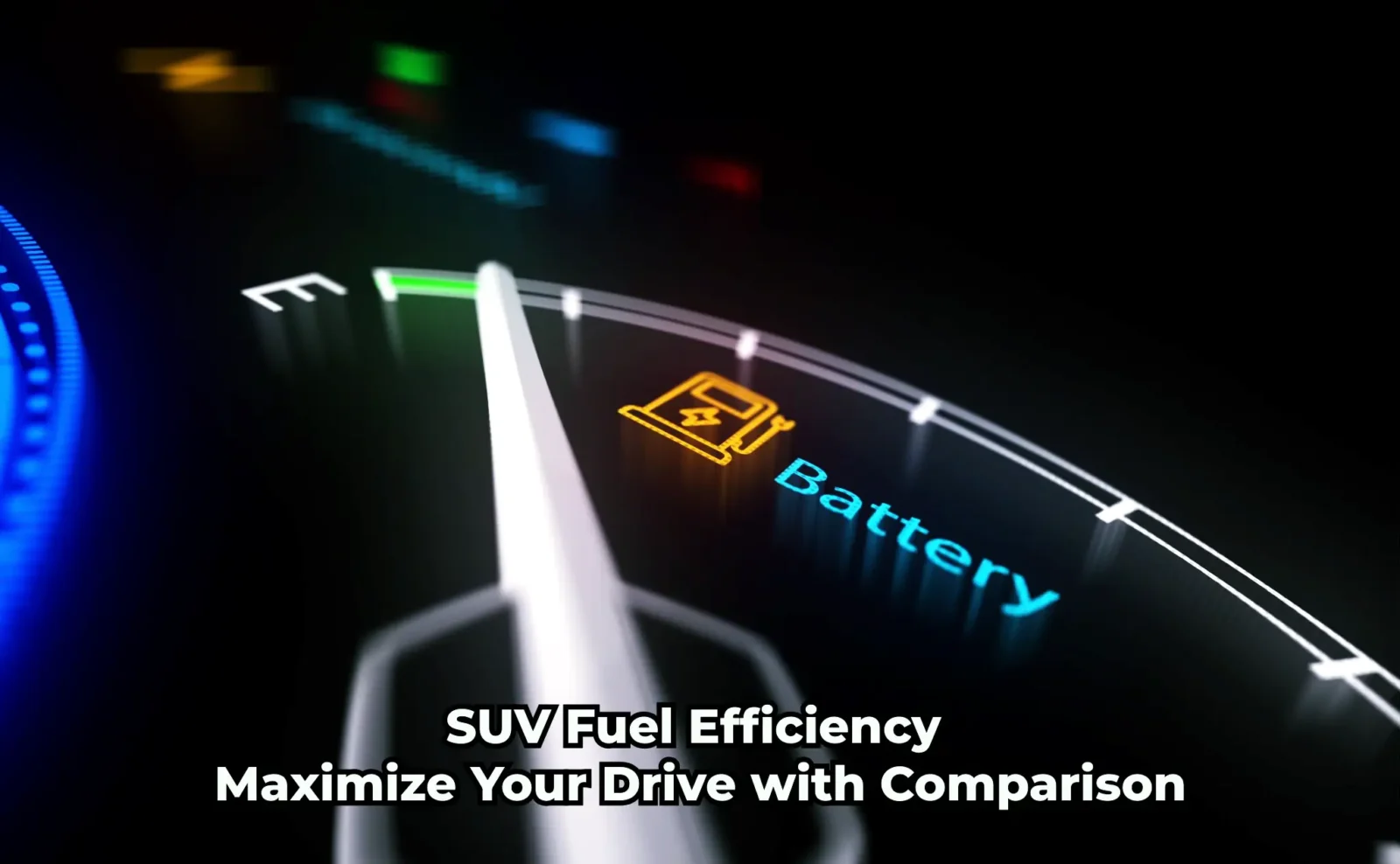In the ever-evolving automotive landscape, the quest for enhanced SUV fuel efficiency remains paramount, especially for those navigating the world of Sport Utility Vehicles (SUVs). Traditionally, SUVs have been stigmatized for their hefty appetites for fuel, but the tide is changing. A surge in innovative engineering and a global push toward eco-friendly transportation have ushered in a new era of fuel-efficient SUVs that no longer compromise power for sustainability. This guide aims to illuminate the path for consumers seeking the pinnacle of “SUV fuel efficiency,” highlighting vehicles that excel in conservation without sacrificing the hallmark traits — space, comfort, and versatility — that define the category.
SUV Fuel Efficiency – Maximize Your Drive
Fuel efficiency in SUVs is measured by the number of miles a vehicle can travel per gallon of fuel (mpg). This metric not only influences the frequency of fuel station visits but also has a significant impact on the owner’s wallet and the environment. Recent years have seen an impressive leap in “fuel-efficient SUV” options, thanks to advancements in hybrid technology, lighter materials, and more efficient engines.
The Transition to Hybrid and Electric SUVs
A noteworthy game-changer in enhancing SUV fuel efficiency is the emergence of hybrid and electric SUVs. Combining traditional combustion engines with electric power, hybrids offer a middle ground for those easing into the electric evolution. Pure electric SUVs, meanwhile, eschew gasoline entirely, drawing power from rechargeable batteries. These models represent the zenith of fuel efficiency, boasting minimal environmental impact and significantly reduced operating costs.
Key Factors Affecting SUV Fuel Efficiency
Several factors contribute to an SUV’s fuel efficiency:
- Engine Size and Type: Smaller, turbocharged engines can provide a balance between power and efficiency.
- Weight: Lighter materials in vehicle construction decrease the overall weight, requiring less energy for movement.
- Aerodynamics: Sleek design reduces air resistance, allowing smoother travel with less fuel consumption.
- Tyre Pressure: Properly inflated tyres minimize resistance, improving mileage.
- Drive Type: All-wheel drive (AWD) systems tend to consume more fuel than two-wheel drive variants due to added weight and mechanical complexity.
Suv fuel efficiency comparison
Here’s a succinct comparison table that showcases the fuel efficiency of various popular SUV models, focusing on both hybrid and fully electric options to provide a comprehensive view. This table includes estimated fuel economy in miles per gallon equivalent (MPGe) for electric vehicles or miles per gallon (mpg) for hybrids, helping potential buyers make an informed decision based on efficiency:
| SUV Model | Type | Fuel Economy (City/Highway/Combined) |
|---|---|---|
| Toyota RAV4 Hybrid | Hybrid | 41/38/40 mpg |
| Ford Escape Hybrid | Hybrid | 44/37/41 mpg |
| Honda CR-V Hybrid | Hybrid | 40/35/38 mpg |
| Tesla Model Y | Electric | 129/112/121 MPGe |
| Hyundai Kona Electric | Electric | 132/108/120 MPGe |
| Ford Mustang Mach-E | Electric | 110/96/103 MPGe |
| Chevrolet Bolt EUV | Electric | 125/104/115 MPGe |
| Volvo XC40 Recharge | Electric | 92/79/85 MPGe |
Top Picks for Fuel-Efficient SUVs
While the market is replete with options, a few models stand out for their fuel efficiency. Below, we delve into some of the top contenders renowned for blending efficiency with functionality and style.
Hybrid Models
- Toyota RAV4 Hybrid: A favorite among eco-conscious drivers, offering robust performance and impressive economy.
- Ford Escape Hybrid: Combines comfort with utility, showcasing exceptional mpg figures without ignoring the aesthetics.
Electric Models
- Tesla Model Y: Revolutionizing the electric SUV market with its outstanding range, performance, and cutting-edge technology.
- Hyundai Kona Electric: A compact SUV that punches above its weight class in range and features, encapsulating efficiency in a stylish package.
Enhancing Fuel Efficiency in Your SUV
Aside from choosing a fuel-efficient model, there are several practices SUV owners can adopt to maximize their vehicle’s fuel economy:
- Maintain Regular Service Checks: Ensures the engine operates at optimal efficiency.
- Mind Your Load: Extra weight demands more fuel; travel light when possible.
- Adopt Efficient Driving Habits: Accelerate gently and maintain steady speeds.
The era of fuel-guzzling SUVs is gradually becoming a relic of the past, replaced by a new generation that marries the incomparable versatility of SUVs with the imperative of environmental stewardship. Whether opting for a hybrid or fully electric model, consumers no longer need to compromise between their love for SUVs and the pursuit of fuel efficiency. The journey towards a greener future is on the horizon, with fuel-efficient SUVs leading the charge.











